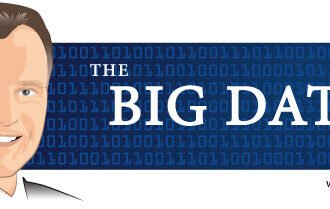Nicholas Carr (of “Does IT Matter?” fame) wrote a post a couple of days ago entitled “All hail the information triumvirate!”
Here is his argument in a nutshell:
what we seem to have here is evidence of a fundamental failure of the Web as an information-delivery service. Three things have happened, in a blink of history’s eye: (1) a single medium, the Web, has come to dominate the storage and supply of information, (2) a single search engine, Google, has come to dominate the navigation of that medium, and (3) a single information source, Wikipedia, has come to dominate the results served up by that search engine. Even if you adore the Web, Google, and Wikipedia – and I admit there’s much to adore – you have to wonder if the transformation of the Net from a radically heterogeneous information source to a radically homogeneous one is a good thing. Is culture best served by an information triumvirate?
Carr discloses that he is on the Encyclopedia Britannica’s board of editorial advisors, but I don’t think he’s writing this as a hit piece against Wikipedia…
Nicholas Carr (of “Does IT Matter?” fame) wrote a post a couple of days ago entitled “All hail the information triumvirate!”
Here is his argument in a nutshell:
what we seem to have here is evidence of a fundamental failure of the Web as an information-delivery service. Three things have happened, in a blink of history’s eye: (1) a single medium, the Web, has come to dominate the storage and supply of information, (2) a single search engine, Google, has come to dominate the navigation of that medium, and (3) a single information source, Wikipedia, has come to dominate the results served up by that search engine. Even if you adore the Web, Google, and Wikipedia – and I admit there’s much to adore – you have to wonder if the transformation of the Net from a radically heterogeneous information source to a radically homogeneous one is a good thing. Is culture best served by an information triumvirate?
Carr discloses that he is on the Encyclopedia Britannica’s board of editorial advisors, but I don’t think he’s writing this as a hit piece against Wikipedia. Nor does he recycle the usual pablum about Wikipedia’s inaccuracies; he has surely read the research that Wikipedia is just as accurate as Britannica.
I agree with Carr that our current use of Google and Wikipedia impoverishes our experience of the information that the web has to offer. In fact, that was a major subtext of my recent presentation on reconsidering relevance. I’m not sure that the dominance of the web is itself a problem, but that’s because I assume that the web is relentlessly assimilating all of the world’s information.
But Carr’s advice isn’t constructive, nor are most of the comments in response to it. Indeed, people wrongly focus their ire on Wikipedia rather than Google. It’s Google that promotes a winner-take-all information economy through its relevance-centric paradigm; if anything, Wikipedia mediates this effect because its results are collaboratively edited.
I think that, if we constrain ourselves to a relevance-centric information seeking system, our current Google + Wikipedia model is close to optimal. To do better, we need web-scale tools that support exploratory search. Long live the HCIR revolution!






